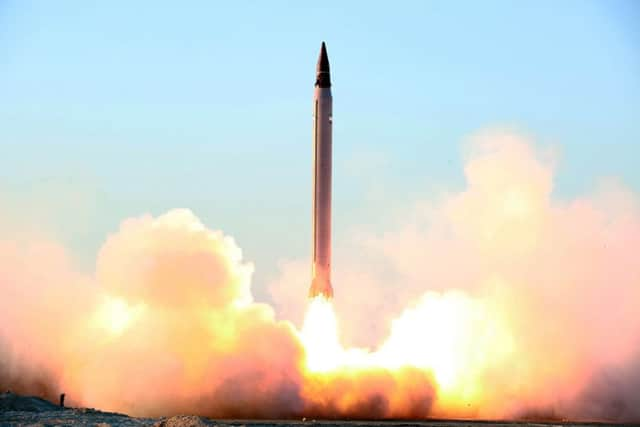Scott Macnab: Kezia Dugdale must be clear on Trident


The meteoric rise of Jeremy Corbyn to the helm of the Labour Party has ignited the Trident debate. A lifelong unilateralist, he wants to see the UK ditch its nuclear stockpile regardless of what other nations do. It is an entirely admirable stand, an issue of principle which feeds into a long tradition within his party of opposition to nuclear weapons.
But it clashes with the position of many senior Labour figures, including his deputy leader Tom Watson and the powerful trade unions who fear the impact on jobs of scrapping Trident.
Advertisement
Hide AdAdvertisement
Hide AdThe shadow Home Secretary, Andy Burnham, has even warned that he could quit over the issue. This matters for Mr Corbyn because it is dominating the political agenda as the UK Government finalises its proposals to spend up to £100 billion, in lifetime costs, on renewing the four submarines and their nuclear-armed missiles which constitute the Faslane-based system.
Official party policy is opposed, but Mr Corbyn has openly stated that he would never “press the button” to fire the weapons – effectively undermining the entire purpose of having the deterrent. Which potential aggressor will be “deterred” knowing the UK would never retaliate with its ultimate defence?
Labour will struggle to escape claims that the party’s position is one of turmoil and chaos until this is settled. Corbyn’s failure to have the issue debated at the recent party conference is a headache as the issue is now likely to drag on until next summer, when MPs are asked to vote on renewal. If public perception grows of a party which can’t reach a position on such a fundamental issue, it will only erode the party’s electoral credibility.
In Scotland, Kezia Dugdale faces the first major test of her fledgling leadership next month when the Trident issue is debated at the party’s conference in Perth. Unlike Corbyn, the Scottish leader is a multi-lateralist who only wants to see the UK discard its nuclear weapons when other, potentially hostile, nations ditch their own. She backs retention of Trident on this basis, but is facing opposition from senior MSPs like Neil Findlay and Elaine Smith, who are opposed.
It’s possible Ms Dugdale may see the attraction in showing her own independence from London by having the Scottish party pursue a different approach from London – even if it contradicts her own position. But the political cost to her authority as leader would surely be devastating if she can’t carry her party on such a major issue. And Labour surely can’t want the bizarre situation where it has a Scottish leader who backs Trident, while official party policy is against it.
By contrast, at UK level the UK leader opposes Trident while official party policy is in favour. The SNP hasn’t been slow to capitalise on Labour’s confusion while espousing its own visceral opposition to nuclear weapons. Divided parties seldom win elections – and Nicola Sturgeon has already fired the starting gun on next year’s Holyrood election. Ms Dugdale must at least establish a clear Labour position on Trident in Scotland – where it is based – before the perception takes hold among voters north of the Border that the party can’t make up its mind on such a fundamental issue of national security.